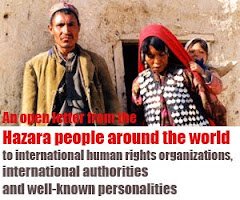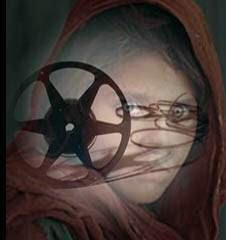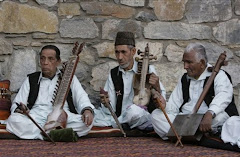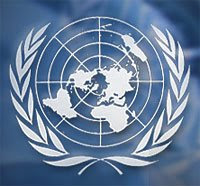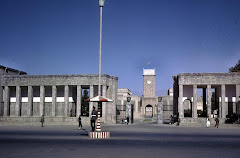
Shaikh Asif Mohseni's Mega- Million Irani Madrasa
Thanks to Daily Guardian, the international community’s attention is now set on the political gamble of Karzai’s “Shia Family Law,” which the UN says legalizes rape. The bill, aimed at gaining sectarian votes, was signed into law after Afghanistan’s supreme court declared Karzai’s stay in power beyond his tenure legitimate.
The “Shia Family Law,” said to be lobbied by Shia clerics, restricts women in ways similar to the Taliban era, when women were not allowed to go out for education, work or doctor’s visit without a male companion. Article 132 of the bill says a woman can’t reject her husband’s request to have sex unless she has a “legitimate excuse.” The bill also limits the women’s other rights, such as the right of inheritance.
The shameful bill was rammed through parliament quickly, almost completely bypassing the reading and debate phase, according to MPs. The main influence behind the law is Karzai’s Religious Adviser, Ayatullah Sheikh Asif Mohsini, an Iran-educated Shia cleric of Pushtoon ethnicity. For those who don’t know, he is the cleric who wrote in his book, Rah-e-Taraqee Maa (Our Path to Success), that “a woman should be ready for sex whenever her husband asks.”
Mohsini is also accused of raping one of his young female students in Mashhad, Iran. When word of the shameful act got to the girl’s family in Afghanistan, Mr. Mohsini, then 64, married the 14-year old. And when the girl’s brother — the renowned commander, Mushtaq, spoke against the cleric — he was killed by Mohsini’s men.
In his book Nazariyaat (Ideologies), the Iran-trained Ayatullah admits to have married four women as per the Sharia Islamic law. The number of his non-Sharia “marriages,” of course, is unknown.
Mohsini owns a TV Channel, Tamaddun, which regularly airs Iranian serials. Sources from among the technical staff of the channel tell us that the station’s equipment is supplied by Tehran, and that the Iranian intelligence finances Mr. Mohsini to run anti-US and Israel news programs.
Mohsini also owns a Madrassa in Kabul. In a speech aired on his TVchannel, he admitted to have spent $20 million on the construction of his Madrassa (where people are asked to chant anti-US and Israel slogans after his Friday speech and prayers). Some experts, however, believe that the actual amount spent on the construction and setup of the Madrassa is about $50 million.
Mohsini rejects accusations that Iran funds his Madrassa and TV channel. But in a poor country such as Afghanistan, there is no way a cleric could spend mega millions on mega projects.
Outrageously enough, though, The Independent and The Guardian reported that the “Family Law” Mohsini advised Karzai on is supported by the Hazaras of Afghanistan. The reality, however, can’t be farther than the reports.
A panel of prominent Hazara scholars and religious leaders, for example, criticized the law in a seminar held at Katib University last month.
Moreover, Hazara women have historically enjoyed more freedoms than those of any other group in Afghanistan. For example, there were 13 women in the Central Committee of the Hazara Unity Party during the civil war of the 90s. No other party in Afghanistan had presence of women in such high-profile political roles. Currently, the Chairperson of Afghanistan’s Independent Human Rights Commission and the former first vice-president of Afghanistan, Ms. Sima Samar, is a Hazara. The first-ever female Governor in Afghanistan is Habiba Sarabi, another Hazara. The first-ever female mayor in Afghanistan,
Uzra Jaffery, is a Hazara. In the 2004 presidential election, the highest female voter registration was recorded in Hazara areas.
The list is not exhaustive, but it proves that Guardian and The Independent were wrong: Hazaras don’t support the new bill; they would not restrict the rights of their women. They’ve historically done otherwise.
What these newspapers are doing is attributing guilt by association to Hazaras: Mr. Mohsini advised Karzai. Karzai passed the bill. Mohsini is a Shia. The Hazaras are Shia. Therefore, the Hazaras must support the bill.
No, the reality is quite the contrary.
This is evident from a recent call to demonstration from Mohsini against media critique of his bill. He had called upon the Hazaras of Kabul to demonstrate against the media’s negative coverage of the bill. For a religious leader of his caliber, the turnout was disappointing. This explains something — that the Ayatullah does not speak for Hazaras. And that Hazaras do not support the bill.
The bill, by the way, is a political card Karzai is playing to appease religious fundamentalists like Mohsini. It has no popular appeal among the starving, destitute masses who could care less about legislation on which spouse gets their way during intimate moments.
Prestigious international papers should exercise much care before making sweeping generalizations about the people of Afghanistan. The “Shia Family Law” is against precedent in Hazara history and society, where women have not only played vital roles at home, but also fought battles shoulder-to-shoulder with men. They wouldn’t support such curbs to freedom of women. Neither would they support religious fanatics who sponsor such bills.
Follow KabulPress for the latest analysis and reports about Afghanistan and the region












